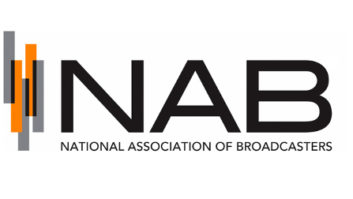The Federal Communications Commission is now taking applications from AM stations under revised rules that ease site limitations for FM translators used by AMs. The rule change took effect today.
This comes after a back and forth in which the National Association of Broadcasters argued there was no good reason for the FCC to delay the change. Prometheus Radio Project, an advocate of low-power FM stations, had asked for an emergency partial stay of the change, which is intended to give 2,000 or so AMs that rebroadcast on translators more flexibility in locating those signals.
Whether the NAB argument played any role in the outcome is unknown, but Radio World has confirmed that applications are indeed now being accepted. An FCC spokeswoman declined comment on whether there would be a response to the Prometheus and NAB filings.
Prometheus wanted the FCC to freeze processing of applications; it believes there will be hundreds if not thousands of translator applications filed and, among other arguments, it wrote that “The premature grant of new translator applications will cause immediate and irreparable harm to many of the low-power FM licensees Prometheus has advised and assisted and to their listeners, whose rights are ‘paramount’ under the First Amendment.” The group said it “intend[s] to seek reconsideration” and that a stay would not cause anyone harm.
But NAB replied last last week that the FCC should reject the request. Its immediate argument against Prometheus was procedural; it said the organization did not even file a petition for reconsideration, as NAB believes is required by the rules.
But if a petition were to be filed, NAB said it is ready with more substantive opposition. “NAB will demonstrate that the commission’s action is a logical outgrowth of the rulemaking proceeding. From the beginning of this proceeding, the commission put would-be commenters on notice that it proposed to relax its rules to revitalize AM radio service. Further, numerous commenters weighed in on both sides of the exact rule Prometheus now seeks to stay. The commission provided proper notice, appropriately considered the comments in the record and determined that its proposed rule needed to be modified. Such a determination was a logical outgrowth of the proceeding.”
NAB thinks the Prometheus petition is “too speculative to justify a stay” and dismissed its argument of irreparable harm. “The fact remains that the commission’s action may have zero impact on LPFM stations. The rule change pertains only to existing cross-service translators; it does not allow translators to increase power or authorize any new translators. Applications to relocate a translator pursuant to the amended rule will be required to comply with all of the commission’s normal channel allocation procedures and to ‘protect any LPFM stations under the contour protections’” set forth in the rules.
NAB believes there is no evidence that translator relocations will hinder LPFMs’ service, “nor can Prometheus predict that relocated translators will be any more preclusive than their current locations. Indeed, it is just as likely that a translator relocation may enhance an LPFM station’s ability to accommodate a new or modified primary FM station.”
And it said Prometheus incorrectly described the new rule restrictions. “Translators that rebroadcast AM stations will remain subject to the current limit of the greater of the station’s 2 mV/m contour or 25 miles from its transmission site.”











